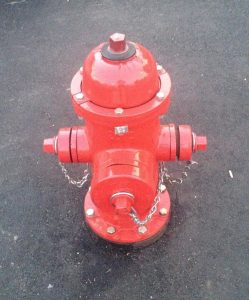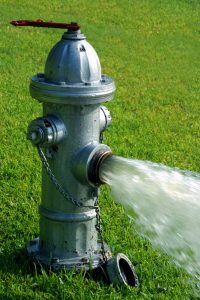MELISSA DANIELS
THE PITTSBURGH TRIBUNE-REVIEW
Facing oppoposition from fire and water officials, the EPA is backing down on the need for lead-free fire hydrants.
 The Environmental Protection Agency is backing down from an effort that urges municipalities to install lead-free fire hydrants because of opposition from fire officials, water authorities and members of Congress.
The Environmental Protection Agency is backing down from an effort that urges municipalities to install lead-free fire hydrants because of opposition from fire officials, water authorities and members of Congress.
U.S. Sens. Bob Casey, D-Scranton, and Pat Toomey, R-Lehigh Valley, were among four senators working on bipartisan legislation that would exempt fire hydrants from EPA requirements restricting the use of lead in certain types of water infrastructure by Jan. 4.
Late Friday, EPA officials said they won’t pursue their plans.
“In response to the feedback received through that process, EPA concluded that fire hydrants are not widely used as a potable source of water and that the guidance should be revised to exclude fire hydrants if Congress doesn’t take action to do so before the January deadline,” EPA spokeswoman Julia Valentine said in a statement.
The fire hydrant rule, announced in October, was part of the Reduction of Lead in Drinking Water Act, a 3-year-old piece of legislation. Throughout the fall, fire departments and water authorities nationwide urged the EPA to change course. Fire hydrants, they said, contain little lead in their metal parts or paint.
Some fixtures, such as shower valves, are exempt from the regulations. The legislation passed by the House of Representatives and under consideration in the Senate would add fire hydrants to the list of exemptions.
Casey and Toomey have said the measure would be “too costly and burdensome.” The Senate was expected to pass the bill sometime before the new year, according to Toomey’s office.
The rule would apply only to hydrants installed after Jan. 4.
At West View Water Authority, project manager George Koleck said hydrants contain few lead-containing metal parts. Yet the authority would have had to replace 30 hydrants in storage, purchased for about $1,800 apiece.
“If the EPA is telling us we have to use no lead, brass or bronze parts in repairing fire hydrants, that means we have to throw out our current inventory and purchase new items,” Koleck said.
In addition, manufacturers might not have lead-free products available, meaning any repairs or retrofitted hydrants would have to be shipped to the factory to comply with regulations.
“We test for lead in our water and we’re well below the standards,” Koleck said. “We’re for safe water, and we’ll do what’s required and necessary, but sometime these regulations are a little more overboard.”
Melissa Rubin, spokeswoman for the Pittsburgh Water & Sewer Authority, said the agency has about 50 hydrants stored to replace broken ones.
If the no-lead regulation had taken place, Rubin said it would have cost the agency $132,000 to replace its stored hydrants.
Melissa Daniels is a Trib Total Media staff writer.
Copyright 2013 Tribune Review Publishing Company, All Rights Reserved


